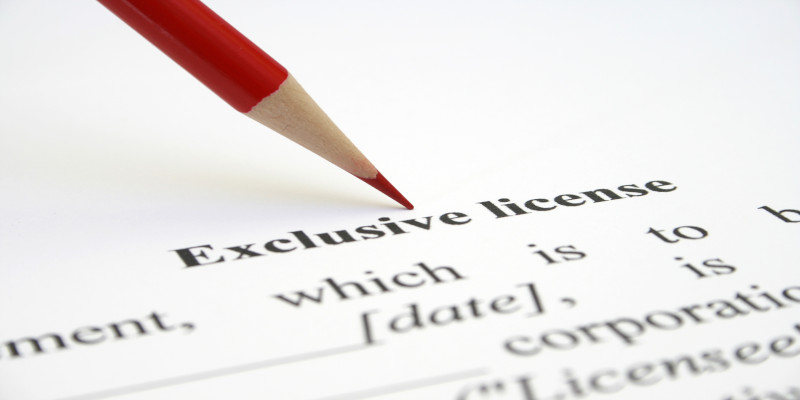
An Intellectual Property License allows an innovator, the licensor, to protect and capitalize on that intellectual property. It allows another party, the licensee, to use that IP, which may take such forms as trade secrets, operational knowledge, registered designs, or proprietary information. Ideally, the relationship is complementary; the licensor profits by allowing the licensee to produce, market, and distribute the IP while the licensee profits by capitalizing on the licensor’s intellectual property.
Licensing Agreement Violations
The licensing agreement outlines the terms and conditions for use of the IP as well as the compensation the licensor will receive from the licensee. If the licensee fails to follow the terms of the contract, the licensor has the right to hold the licensee accountable. Common violations of licensing agreements include
- Failure to follow exclusivity clauses in the agreement;
- Failure to prevent use of the product by an unauthorized third party;
- Failure to stop using the product after the license expires;
- Failure to pay all or part of stipulated royalties; or
- Failure to use the product as stipulated.
The type and extent of the violation will determine whether it is a breach of license, an infringement, or both. The distinction is important because the legal repercussions and damages differ depending on the classification of the violation.
Exclusive or Nonexclusive
According to the Law Dictionary, a breach is “the violation of or failure to meet a legal obligation. Usually referring to contracts (see breach of contract) where a legal obligation under contract has failed to have been met by one of the parties, for example, a payment requirement.”
When the license is exclusive, that agreement in effect transfers ownership of the IP rights to the licensee for the duration of the contract. If, despite the exclusivity of the agreement, an unauthorized party is given access to the IP, that action is usually treated as a breach of contract because the licensee owns the IP rights at that time. Any intellectual property that is used in a way that does not follow the contract, then, is treated as a breach of contract.
By contrast, infringement means “the violation of law or a right. This term is most frequently used with regard to intellectual property infringements which include Copyright Infringement Patent Infringement Trademark Infringement.” If the license is non-exclusive, and the licensee uses the IP in some way beyond the scope of the agreement, the licensee is liable for infringement.
Contract Covenant or Condition Precedent
A contract covenant is an unconditional agreement in a contract, often signaled by words like promise, assume, agree, or undertake. When a licensee violates a contract covenant, the violation is considered a breach of contract, which potentially makes the licensee liable for damages.
A condition precedent means that something must occur before a condition takes effect, potentially resulting in license infringement. A contingency loan is a good example. Often signaled by words like when, subject to, or conditional upon, the condition does not occur without the preceding event or situation. Because the condition is not met, it negates the contract, making breach of contract impossible.
Impact on Damages
In some cases, the licensee may be liable for both breach of contract and license infringement. The distinction between the two is significant because the amount of damages awarded differs based on the charges. For example, recovery of attorney’s fees is easier in cases involving breach of contract. Exemplary, statutory, or actual damages may be available depending on whether or not the action is treated as a breach of contract or infringement. In trademark actions, a plaintiff may recover three times the damages if the court rules in his or her favor.
Fully understanding violations of an IP license may be a challenge for both licensor and licensee. However, this knowledge has a significant impact on whether and how the case moves forward. An experienced business attorney can accurately assess the type of violations and their repercussions, advocating for clients and protecting their interests.
All information provided on Silblawfirm.com (hereinafter "website") is provided for informational purposes only and is not intended to be used for legal advice. Users of this website should not take any actions or refrain from taking any actions based upon content or information on this website. Users of this site should contact a licensed Texas attorney for a full and complete review of their legal issues.
